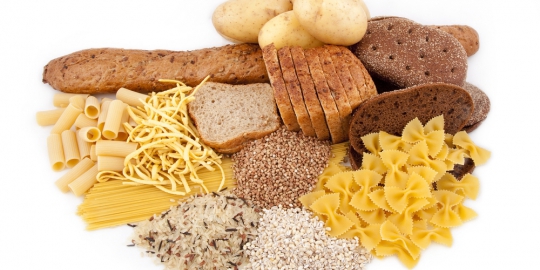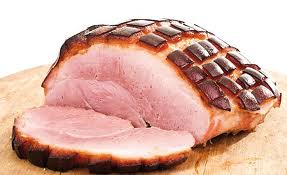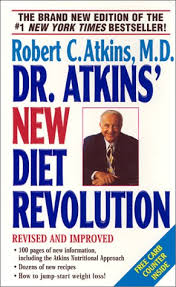What is the Problem with Carbs?
For 40 years it has been propagated (in the Western world) that a high fat content in the diet is harmful and unhealthy. Strangely enough, the proportion of obese people in the population has also been rising for 40 years. According to the WHO, the proportion of obesity has almost tripled since 1975. Coincidence?
"No, no coincidence!" more and more scientists say. When the fat was banished from the diet (fat meat, butter, oil, etc.), it was replaced by carbohydrates. Bread, rolls, noodles, potatoes, and pizza form the main component of the diet according to the "food pyramid". For this you should mix a lot of vegetables and sparse meat (but if, then "low-fat"). Of course not "recommended" but still part of the diet is the occasional cookie, marsh mellow or an ice cream. Ultimately, it makes little nutritional difference, in what form carbohydrates are consumed. The processing in the body is always the same, whether it is pure or "hidden sugar".
As a matter of fact the human body converts carbohydrates directly into glucose (this is one sort of fuel for the body) and all "unused glucose" is stored as fatty tissue. Especially in the US, it is clear that something is going wrong. 90% of the menu in a typical family diner consists of sandwiches, wraps, burgers, and so on. Along with pizza sometimes they perversely serve "bread sticks". In the US, the typical diet is very carbohydrate heavy and the proportion of obese people in the population is currently 35%. Trend ascending. The US government (e.g. the former FLOTUS Michelle Obama) reacts with "less food, more exercise" - is that the solution?


Now, what is the Solution?
The solution is to condemn the excessive amounts of carbohydrates from our diet. It is neither natural nor necessary for humans to consume "processed carbohydrates" at all. The food pyramid needs to be turned upside down!
The pioneer of the "Low Carb High Fat" movement was Dr. Atkins. He had found out that patients he had put on a low carbohydrate and high fat diet lost weight very quickly and very consistently. He was always very controversial and has unfortunately not lived long enough to experience the current Low Carb boom. The main criticism was (and is) that high intake of fat increases blood cholesterol, leading to heart disease. However, such a connection could never be substantiated either scientifically or statistically. The answer is a little bit more complex and it is import which fats we eat (keyword: LDL vs. HDL)!
Conclusion: people don't get fat from fat, but from carbohydrates!
Low Carb Variations
Meanwhile there are many forms of low-carbohydrate and high-fat diets, but all are based on the same idea: main food source are fats and proteins, carbohydrates is little or almost not fed. Well-known representatives of these are:
- LCHF (Low Carb High Fat) - carbohydrate intake is limited to 20 - 50 grams per day (depending on personal tolerance), high or unlimited fat intake and moderate proteins, vegetables: only those with low carbohydrate content
- Paleo - cat like a caveman. Only "unprocessed carbs" are allowed, ie fruits, vegetables, etc. fat and protein allowed, no dairy products
- Atkins - low carbohydrates in 4 phases (starting with very low - then increases step by step)
- Ketogene diet - carbohydrate intake is decreased to such a low level that the body switches to using ketones instead of glucose (as the energy carrier). All energy now comes from fat (including body fat)


How about my Health?
A direct effect of obesity is an increased risk of diabetes 2. This is because the human body becomes more and more unable to respond to insulin that it produces to break down the glucose in the blood. The body initially compensates for this by having the pancreas producing more insulin (also called "pre-diabetes). But this mechanism collapses sooner or later. Experience has shown that LowCarb-ers can greatly mitigate or even reverse this process. Due to the reduced carbohydrate intake, the permanent insulin roller coaster slows down and the insulin production and use normalizes.
Another aspect is the negative influence on nerves and brains, which wheat products are said to have. The most famous supporter here is probably Dr. Perlmutter with his book "Grain Brain". Perlmutter is a neurologist who explains how decades of consuming wheat-based products are gradually destroying our brains. Fact is that diabetes 2 patients are statistically twice as likely to get Alzheimer's as healthy people, and there is even the suggestion to rename Alzheimer's to "Diabetes 3". Wheat products are also said to ceate all sorts of allergic reactions, including skin diseases, digestive problems, arthritis and much more. A good book on that matter is Wheat Belly by Dr. William Davis.



